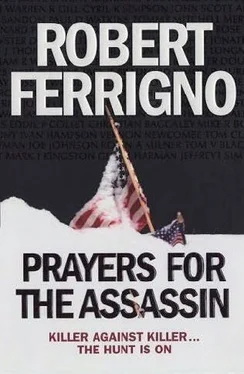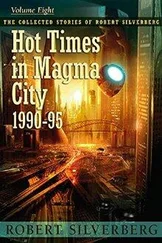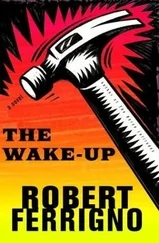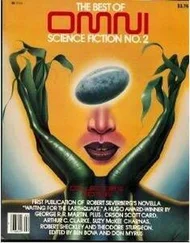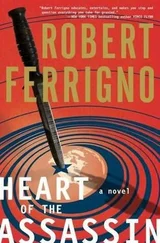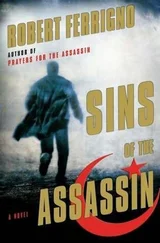It had taken him a day to find the gypsy cabdriver who had picked up Sarah in the Zone late Wednesday night. Her neighbor Hennesy had been right, it had been a Ford that had picked her up, but it had been dark green, not maroon.
The cabdriver had recognized the photo of Sarah-his eyes gave him away-but, he just said, what’s it worth to you, brother? Silvery protective medallions picturing Osama and Zarqawi dangled from his rearview, faces turning as the Ford roughly idled. “How much, brother?”
The lights in the ranch house came on as Rakkim navigated the road. He had only been here once before, five years ago when he’d been home on leave, jangled, unable to sleep. Nothing had seemed familiar. Except for Sarah. She had brought him to the ranch, not even telling him where she was taking him, wanting to surprise him. It had worked. Jill Stanton was easy and unaffected, quick to laugh, a woman who had willingly left the glamour of Hollywood behind fifteen years earlier and never looked back. The three of them had ridden horses all morning, then picnicked beside a river, lazing with cheese and fresh peaches and cold cider in the sun.
Sarah had interviewed Jill for How the West Was Really Won: The Creation of the Islamic States of America through the Conquest of Popular Culture. Lousy title, Rakkim had thought, but he wasn’t complaining if it got him the chance to meet Jill Stanton. “The Face” herself, the woman considered the most beautiful and talented actress of her generation.
Jill Stanton’s proclamation of faith while accepting her second Academy Award would have been enough to interest tens of millions of Americans in the truth of Islam, but she had also chosen that moment in the international spotlight to announce her betrothal to Assan Rachman, power forward and MVP of the world champion Los Angeles Lakers. Celebrity conversions cascaded in the weeks after that Oscars night, and according to Sarah’s research, the newly married couple were feted on fifty-seven magazine covers over the next two years. Jill and Rachman had been divorced for eighteen years now, and it had been more than that long since Jill had been in a film, but she remained a revered, if reclusive, personality. Her interview with Sarah was one of the few she had given since retirement, and Sarah had taken pains to safeguard her privacy.
Jill stepped out onto the porch as Rakkim’s car approached. She waved as he pulled up, walking down the steps to meet him.
“Where is she?” said Rakkim.
Jill put her hands on her hips. She was almost sixty years old, still lean and beautiful, radiantly healthy, her long, braided hair salted with gray. She wore boots and jeans and a chamois shirt the color of butterscotch. “You’ve lost your manners, Rakkim. A pity.”
Rakkim stepped up onto the porch and threw open the door. “Sarah!”
Jill was beside him. She smelled like horses. “She’s not here.”
Maybe it was the movie star voice, or the face, but Rakkim knew that she was telling the truth. He had no idea what it would take to make her lie. Jill had turned down multimillion-dollar offers to write a tell-all book about her marriage. She had never advertised a product or endorsed a political candidate. He had only met her that one other time, but if Jill Stanton said that a great white whale was swimming up her driveway, Rakkim would look for a harpoon. “Where is she?”
“I don’t know. Come on in.” Jill took his hand in her rough grip, led him into the living room. Knotty-pine interior, thick antique carpets, plush sofas and easy chairs. Clean and comfortable. “She left a half hour ago. I’m worried about her too.”
“Call her.”
“She always keeps her phone turned off. She says a cell phone can be used to pinpoint your position. Is that true?”
Rakkim nodded. “Call her anyway.”
Jill didn’t like being told what to do, but she did it. A guest, even a boorish one, had certain privileges. She was right though. Sarah’s phone was off.
“How much has she told you?” said Rakkim.
“She said she’s working on something dangerous. She wanted to make sure I understood there was a risk to taking her in.” Jill’s gaze was cool and clear. “I told her I haven’t been afraid since I found my faith. What about you, Rakkim? Are you afraid?”
“Only when I breathe.”
“Yet, you’re here.” Jill smiled. “You can wait here for her.”
Rakkim wanted to put some distance between them. It was hard to get a read on things with her so close. Redbeard used his bulk and physical presence to intimidate, but Jill used her femininity the same way. He walked over to the spot on the wall marking the direction of Mecca. A large photograph of the Great Mosque hung at the precise proper direction on the wall. The photo was taken at sunrise during the hajj, a sea of believers spread out from the square, black Kaaba, the prostrate multitudes touched by golden light.
“I made my journey three years ago,” Jill said, coming over beside him. “There was a peace I can’t describe, Rakkim. In a way, the lingering radiation makes the passage even more precious. A few months ago my doctor found a lump in my right breast…a tiny lump, no bigger than a poppy seed. I had it removed. Some pilgrims, older ones mostly, choose to do nothing. They think it’s a sign of their devotion, but I-”
“Anybody else living here with you?”
Jill’s eyes flashed, that old diva power, and he felt it like a slap. “A few ranch hands and their families live in the outbuildings, but they’ve been with me for years. They have no idea who Sarah is, and no interest in asking. They’re good Muslims. You can meet them at midnight prayers, if you like.”
“I don’t think so.”
“I see.” Jill lowered her eyes. Hard to see a beautiful woman who felt sorry for him. She patted his arm and made the hair stand up. “Perhaps Sarah will be back before then.”
Rakkim checked the driveway. “Do you have any idea where she went? She must have said something to you when she left.”
“She said she would be back in a few hours, that’s all. I’m going to make some tea.”
Rakkim followed her into the kitchen. “Did she take a cab?”
“Sarah borrowed a car from one of the hands.” Jill ran water into a copper teapot, set it on the stove. “Carl is a mechanic. He builds Frankenstein cars from wrecks he drags back from the junkyard. Mostly he drives them around the property-they’re not licensed. Sarah insisted on taking one of his creations.”
“She didn’t want to bring any trouble on you…in case something happened to her.”
“She’s a friend. Her troubles are my troubles.”
It was an easy thing to say, but hard to live with the consequences. Rakkim kept silent. No point in trying to communicate the possibilities to Jill. A small photo was above the sink, a picture of two teenage boys each with an Academy Award balanced on his head. They had her smile.
“My boys,” said Jill. “Ahmed and Nick. Ahmed is an executive with Puget Shipping, Nick is Fedayeen.” She looked at Rakkim. “Sarah says you’re not Fedayeen anymore.”
“I’m retired. Once Fedayeen, always Fedayeen.” Rakkim watched as she poured water into a couple of ceramic mugs, then dropped a bag of black tea in each.
“Sugar?”
Rakkim shook his head, took the mug. The kitchen was as comfortable and unassuming as the living room, spacious and clean and practical, with pots and pans dangling from hooks and a large, freestanding butcher block. A plain white-pine table was in a breakfast nook. He imagined Jill and Sarah having scrambled eggs with cheese early in the morning, watching the sunrise over the mountains. Then clearing the plates and tending to the animals, shoveling out the barn and dredging the duck pond. “Do you miss it?”
Читать дальше
